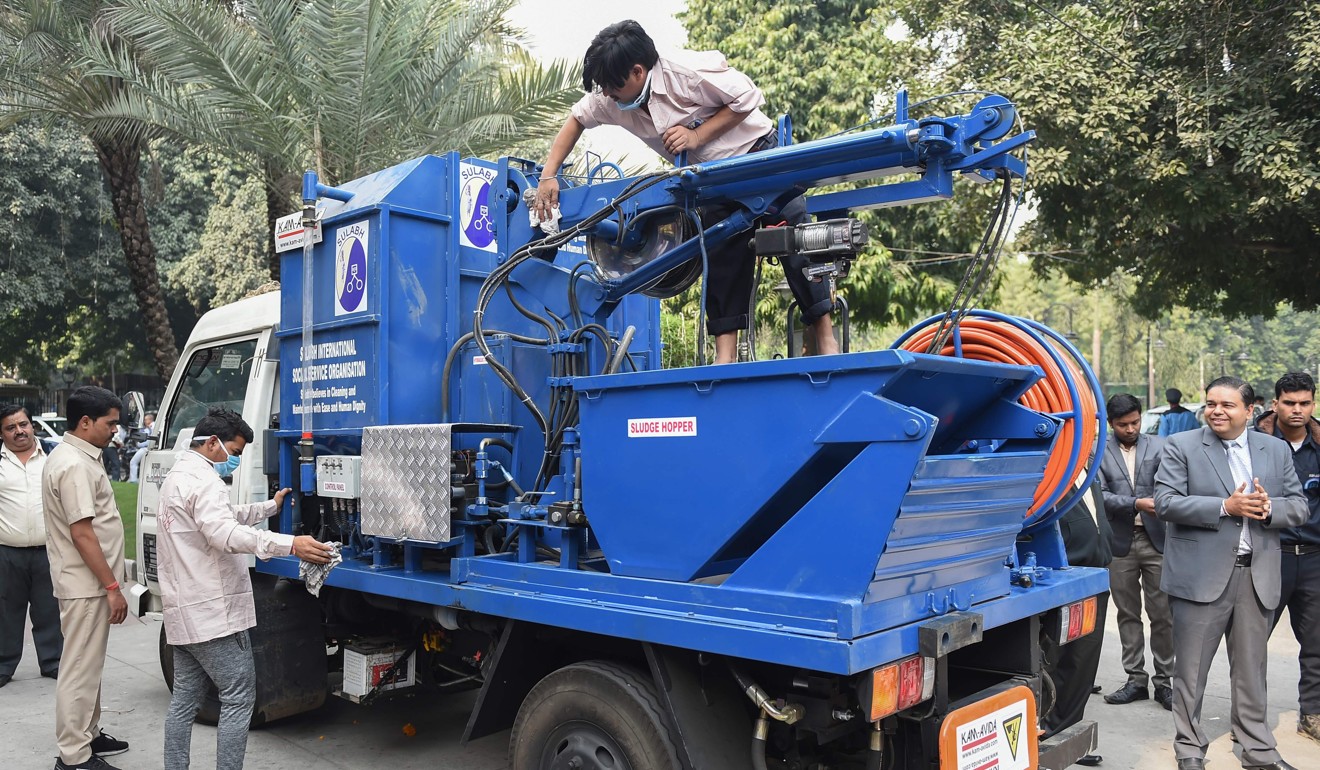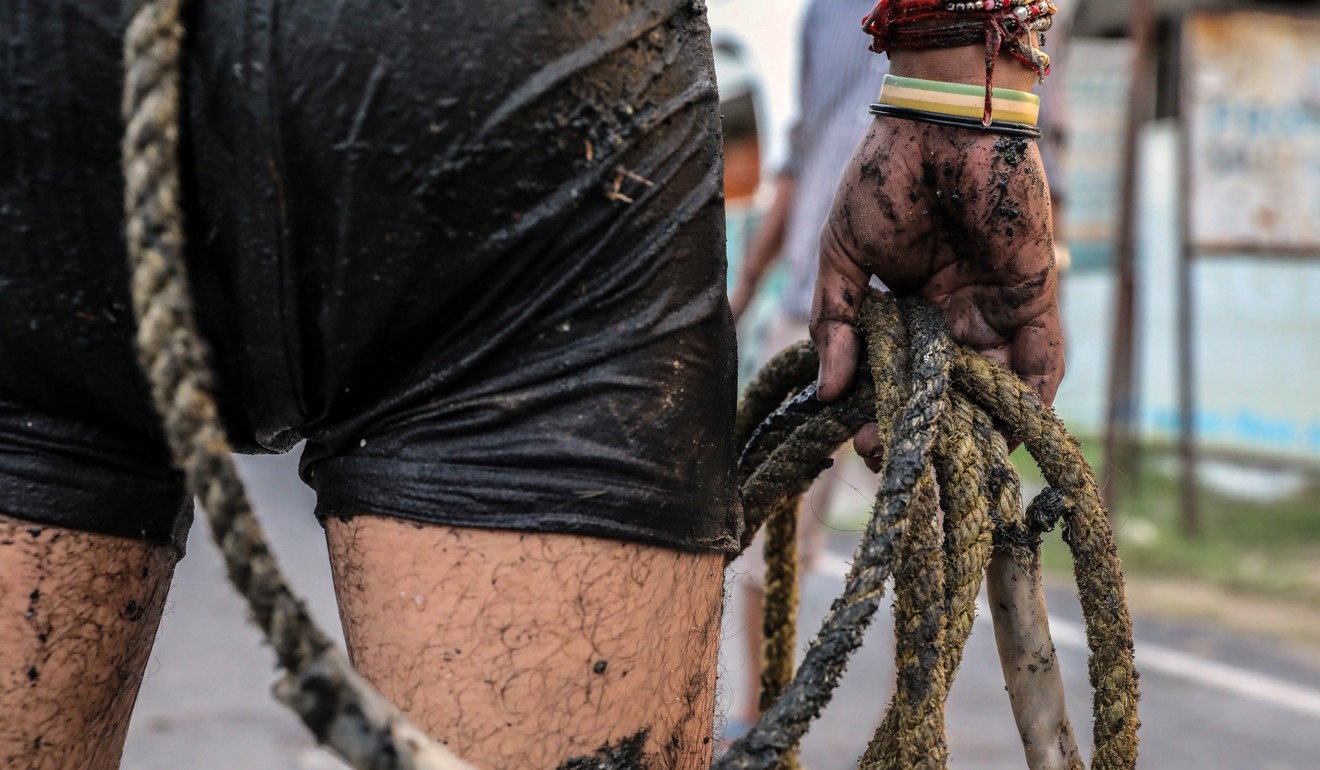
Indian charity launches new cleaning machine in a bid to end country’s sewer death shame
- In the past three years, more than 1,300 ‘manual scavengers’ have died in the country’s sewers – most by suffocating
Hundreds of “manual scavengers” die each year cleaning out sewers in cities across India, but a new machine unveiled on Monday for World Toilet Day could help put an end to that tragic record.
Unclogging human waste from underground pipes is undoubtedly one of the world’s dirtiest jobs and one that few people would volunteer to do, but for thousands of mostly lower-caste Indians it is the only work they can get.
In the past three years, more than 1,300 of these “manual scavengers” – so called because they scrape the waste away using their bare hands without wearing any protective gear or masks – have died, most by suffocating, according to the Sulabh International charity.

Sulabh’s new machines, which inject high-pressure water into sewer tunnels and septic tanks, do away with the need for manual scavengers as the waste can be collected with a mechanical bucket operated from ground level so that no human need go down the pipes.
High-resolution images of the sewer system are relayed to the machine’s operator using a remote controlled inspection camera.

Bindeshwar Pathak, founder of Sulabh International, said forcing humans into the sewers was “demeaning”.
“We hear so often the tragic news about sewer workers losing their lives,” he said.
With this machine we hope no person will die in the sewers any more
“This machine can safely clean the waste matter and it will gradually make manual scavenging redundant. With this machine we hope no person will die in the sewers any more.”
Indian lawmakers have passed several laws aimed at stamping out the age-old practice of manual scavenging, the latest in 2013. But many scavengers are still used through subcontractors.
In rural areas, women “scavengers” clean out primitive non-flush toilets with basic tools, although the practice is now on the wane.
Pathak also unveiled a giant Indian-style toilet pot on Monday to raise awareness about sanitation in a country where some 150 million people do not have toilets in their homes.


.png?itok=arIb17P0)